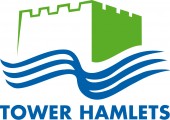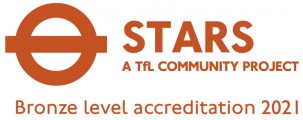Mathematics

At Halley Primary School, every child can achieve in maths and it is our responsibility to make this possible. As teachers, we believe that every child is a capable mathematician with the ability to reason and problem solve. Exploration and discovery are at the heart of our curriculum. Opportunities for reasoning, explanation and clarification are provided through talk. High quality dialogue within the classroom will make sure our children are challenging their own thoughts with those around them whilst broadening their knowledge and understanding. It is our intent to deliver the content outlined in the mathematics programmes of study within the national curriculum. We follow the learning sequences outlined by The White Rose maths team.

In mathematics, we are passionate about implementing our curriculum through a mastery approach because we want all of our children to have a deep understanding of mathematical concepts. We use a concrete, pictorial, abstract approach, including conceptual variation to help children become fluent mathematicians. When learning new knowledge, we often follow the mastery principle of procedural variation to support children’s cognitive load when mastering new knowledge. Fluency, reasoning and problem-solving are woven into each lesson. We aim to develop rounded mathematicians by ensuring children are exposed to conceptual variation of the concepts we are teaching. Our curriculum sequence follows the mastery principle of small steps; the majority of pupils will move through the curriculum at the same pace supported with concrete and pictorial representations and challenged through open-ended problems rather than moving on to new content.

We will know that our approach to mathematics is having the desired impact as pupils will have mastered a range of skills: applying previously learnt knowledge to new concepts; to check own work for errors and to develop mathematical language to make thinking clear to themselves and others. Additionally, we will measure success by our pupil’s ability to speak confidently and articulately using accurate mathematical vocabulary.
Our pupils will develop a deep conceptual understanding and be able to move fluently between mathematical concepts. They will be able to recall and apply knowledge rapidly and accurately. Pupils will demonstrate independence in knowing the concepts they need to practice and over time, through guided practice and feedback, they will develop systematic methods of working. Alongside these aims, we will measure progress through weekly and termly assessments that will highlight progress made and further areas for improvement.
Our Curriculum
Teaching for Mastery


Our maths curriculum has number at its heart. A significant amount of time is spent in each year reinforcing number in order to build competency and ensure children can confidently access the rest of the curriculum. We explore each topic in great depth before moving children on to new learning. To help children develop their mathematical knowledge we build in many opportunities to revisit and review so children can move knowledge from their short-term memory into their long-term memory. Our maths sessions always include fluency, reasoning and problem-solving challenges that children will explore in both guided and independent learning opportunities. To support children to understand mathematical concepts we teach through three clear stages: concrete, pictorial and abstract. This allows children to gain a deeper understanding of mathematics and also offer opportunities for maths talk to be present in our lessons.
 Concrete
Concrete
Children should hove the opportunity to work with physical objects/concrete resources. In order to bring the maths to life and to build understanding of what they are doing.
 Pictorial
Pictorial
Alongside concrete resources, children should work with pictorial representations, making links to the concrete. Visualising a problem in this way can help children to reason and to solve problems.
 Abstract
Abstract
With the support of both the concrete ond pictoral representations, children can develop their understanding of abstract methods.
Homework
We set homework for maths on a weekly basis: Mathseeds for Reception, Year 1 and Year 2; Mathletics for Year 3, Year 4, Year 5 and Year 6. In addition to this, we also use Times Table Rock Stars to support our children to become fluent in their times tables.





















